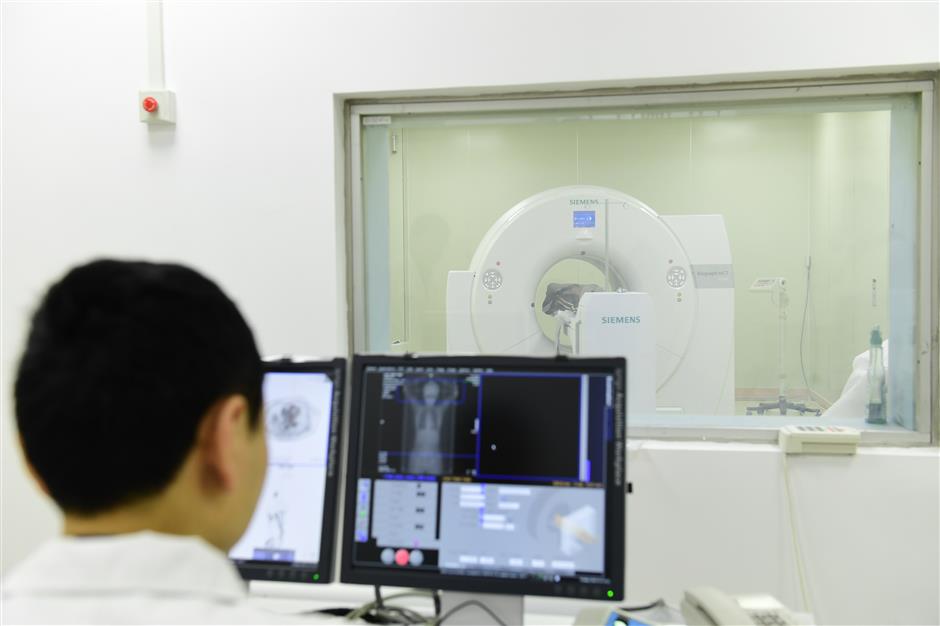Doctors develop new method to screen prostate cancer
Local surgeons have teamed up with nuclear medicine experts to develop a new method to identify cancerous spread which is missed with traditional checks for timely and individualized treatment of patients with prostate cancer.
The discovery, developed by experts from Shanghai Cancer Center, was published in the journal Clinical Cancer Research on Thursday.
“This research is the achievement of multidisciplinary cooperation between the urinary surgery department and the nuclear medicine department,” said Dr Ye Dingwei from Shanghai Cancer Center and a leading surgeon in the project.
“Unlike in Western countries, many Chinese prostate cancer patients are identified with the disease in the middle and late stages. Only one-third of patients have the opportunity to receive radical surgery when they are diagnosed with the cancer,” said Ye, who has been promoting early screening for prostate cancer in China.
“Patients who miss the opportunity for surgery have to receive endocrine treatment to control the disease, however such patients are likely to develop drug-resistance within one to two years and their condition will worse quickly. Targeting such patients, we need a more effective and precise treatment plan,” he said.
The diagnosis of middle- and late-stage patients usually involves MRI, CT and bone scanning, however such checks can miss small metastases.
Ye teamed up with colleagues in nuclear medicine to check two biomarkers of patients using PET/CT scans. About 73 percent of patients who were not found with metastasis under traditional checks were found with small cancerous spreads.
“Most patients can receive surgery or radiation to control such metastasis to achieve longer survival under our research,” Ye said.
The five-year survival rate for patients with prostate cancer at Shanghai Cancer Center has reached 82.6 percent, much higher than the 69.2 percent national level.
“We will boost research to benefit more patients in middle and late stages,” Ye added.

Dr Ye Dingwei in a prostate cancer surgery.

Doctors use PET/CT to check a patient at Shanghai Cancer Center.















